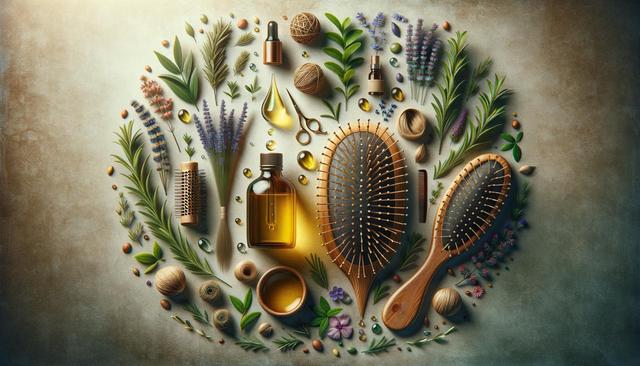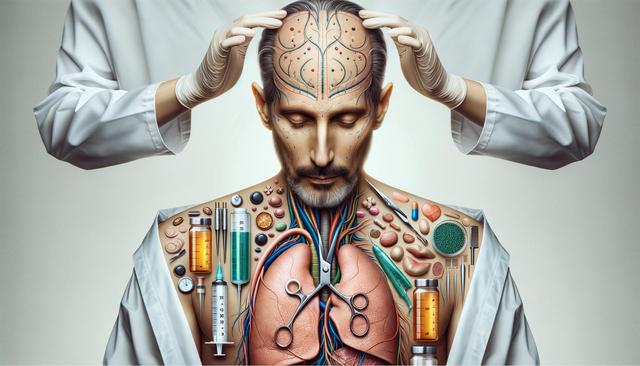Understanding Natural Hair Growth Cycles
Before diving into natural remedies and therapies, it’s important to understand how hair growth works. The hair growth cycle consists of four phases: anagen (growth), catagen (transition), telogen (rest), and exogen (shedding). Disruptions in this cycle—whether due to stress, hormonal imbalance, nutritional deficiencies, or environmental factors—can lead to thinning or hair loss. Exploring solutions for hair loss often begins with addressing the root causes that affect this cycle. By understanding these phases, individuals can better identify what treatments or lifestyle changes may positively influence hair regrowth.
Natural approaches aim to support the body’s own ability to maintain a healthy growth cycle. Rather than forcing hair growth, these methods focus on creating optimal conditions for the scalp and hair follicles. This includes improving blood circulation, reducing inflammation, and increasing the availability of essential nutrients. For many, choosing natural solutions aligns with a preference for fewer side effects and a desire to work in harmony with the body’s processes.
Herbal Remedies and Plant-Based Oils
Herbal remedies have long been used in various cultures to support hair health. Specific herbs and plant-based oils are known for their nourishing properties and potential to stimulate hair growth. Among the most well-known options are:
- Rosemary oil – believed to improve circulation to the scalp
- Peppermint oil – may provide a cooling effect and support follicle health
- Amla (Indian gooseberry) – rich in vitamin C and antioxidants
- Saw palmetto – often used to balance hormone levels that influence hair loss
- Fenugreek – packed with proteins and nicotinic acid, which may strengthen hair
These natural ingredients are typically applied topically through oils, masks, or infused shampoos. Consistency is key when using such remedies, as results are gradual and depend on individual response. Additionally, some individuals incorporate herbal supplements into their routines, but it’s important to consult with a healthcare professional before doing so, especially when managing underlying health conditions.
Scalp Massage and Stimulation Techniques
Stimulating the scalp through massage is a simple yet potentially effective natural therapy. Scalp massage increases blood flow to the hair follicles, which can support nutrient delivery and waste removal. Over time, this may help reinvigorate dormant follicles and encourage new growth. Techniques can be performed manually or with the help of tools such as massage brushes or handheld scalp stimulators.
Popular scalp stimulation methods include:
- Daily finger-tip massage using circular motions
- Essential oil application combined with massage for added benefits
- Scalp exfoliation to remove buildup and promote a healthy environment
Incorporating these practices into a regular self-care routine can also reduce stress, which is another contributing factor to hair shedding. While scalp massage alone may not resolve all causes of hair loss, it is a complementary approach that supports overall scalp health and may enhance the effectiveness of other treatments.
Nutritional Support and Supplements
Nutrition plays a significant role in maintaining healthy hair. Deficiencies in certain vitamins and minerals can impair hair growth and lead to thinning. Exploring solutions for hair loss often includes evaluating dietary habits and considering supplementation when necessary. Some nutrients that are frequently associated with healthy hair include:
- Biotin (Vitamin B7) – supports keratin production
- Iron – essential for oxygen transport to hair roots
- Zinc – involved in tissue growth and repair, including hair
- Vitamin D – plays a role in follicle cycling
- Omega-3 fatty acids – support scalp hydration and reduce inflammation
Whole foods such as leafy greens, eggs, nuts, seeds, and fish are excellent dietary sources of these nutrients. When dietary intake is insufficient, high-quality supplements can help fill the gap. It’s advisable to choose supplements that are well-regarded and have transparent labeling. As with any health-related intervention, consulting a healthcare provider ensures that supplementation is tailored to individual needs and does not interfere with existing health conditions or medications.
Lifestyle Habits and Stress Management
Hair health is closely connected to overall well-being. Chronic stress, lack of sleep, and unhealthy habits can disrupt the hair growth cycle. Adopting lifestyle changes that promote physical and mental balance is a crucial part of any natural hair care regimen. Practices that may support hair regrowth include:
- Regular physical activity to improve circulation and reduce stress hormones
- Adequate sleep to support hormonal balance and cellular repair
- Mindfulness techniques such as meditation or yoga
- Avoiding tight hairstyles that cause tension on the scalp
- Minimizing use of harsh hair treatments and heat styling tools
These habits not only help in managing hair loss but also contribute to a healthier, more sustainable lifestyle. While results may take time, consistent efforts in improving daily routines often yield noticeable improvements in hair health and overall vitality.
Conclusion: Embracing Natural Solutions for Hair Care
For individuals exploring solutions for hair loss, natural remedies and therapies offer a gentle and holistic approach. While results can vary and may not be immediate, many find value in methods that support the body’s natural functions without reliance on aggressive treatments. From herbal remedies to lifestyle adjustments, the key is consistency and patience. By nurturing both scalp health and overall wellness, individuals can create favorable conditions for hair growth and potentially reduce further hair loss over time.


